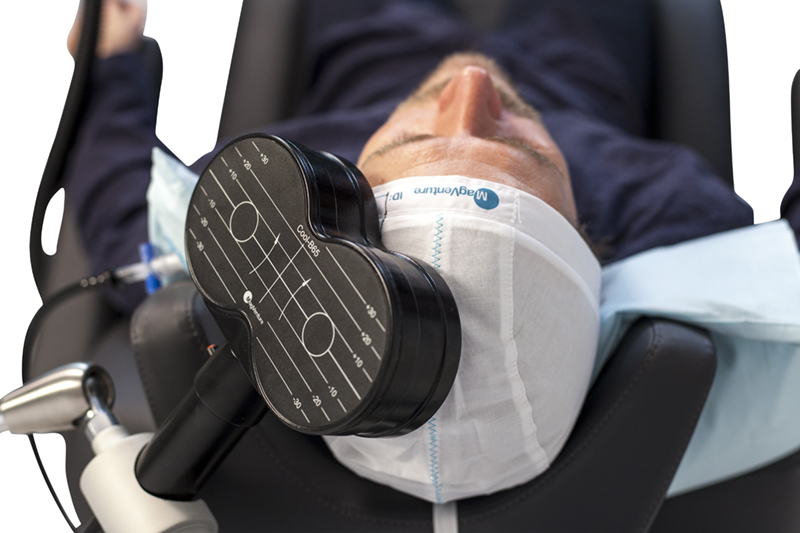The History of Depression
As long as human beings have existed, they have dealt with depression and other forms of mental illness. The earliest written accounts of depression date back to the second millennium B.C., in Mesopotamia. Originally thought of as a spiritual issue rather than a physical or mental condition, priests were called to attempt treatment, rather than physicians. The history of mental health care involves spiritual intervention, various pharmacological treatments, institutionalization, and new forms of therapy.
Today, our understanding of mental health has come incalculably far, and yet an estimated 16 million Americans grapple with major depressive disorder each year. Many people who have been diagnosed with the disorder believe that they have tried everything, and indeed their medical charts are full of acronyms representing various prescriptions and therapeutic approaches – SSRIs, SNRIs, MAOIs, CBT, DBT, EMDR, the list goes on. They may not be aware of a promising, FDA-approved treatment called transcranial magnetic stimulation.
What is TMS?
TMS is an abbreviation for transcranial magnetic stimulation: a noninvasive procedure that utilizes magnetic fields to stimulate nerve cells in the brain. Research shows that this therapy can improve symptoms of major depressive disorder. It has been approved by the FDA and has even been recommended by the American Psychiatric Association and The Royal Australian and New Zealand College of Psychiatrists for those who have not seen results from other treatments.
This outpatient procedure doesn’t require hospitalization and can be completed in 40-minute appointments. Because of the noninvasive nature of TMS, clients do not require anesthesia for these sessions. The procedure is comfortable, safe, and efficient.
A Look Inside a TMS Session
Many people are hesitant about undergoing any type of medical procedure, which is why it can be hugely beneficial to conduct your own research before walking into a clinic.
Before you are approved for TMS, you will need to have a physical exam, along with a few other tests that ensure that you are a good candidate for this treatment method. For example, those who are pregnant or who have any implanted medical devices (such as pacemakers or medication pumps) should seek an alternative approach. You’ll also speak directly with a licensed therapist about your symptoms, which will contribute to your eligibility for TMS. Tell the team about any medications you’re taking, including any OTC products or herbal supplements, and let them know about any medical history involving headaches, conditions, or past injuries. While TMS is a relatively low-risk procedure, it’s always best for your medical team to have a clear picture of your health. Once you’re cleared for treatment, the sessions can begin.
Each TMS session lasts about 40 minutes – as with all initial appointments, you will be asked to schedule extra time to complete paperwork before your first session. The medical team shows you into a private room with a comfortable chair, where you’ll sit for the duration of the procedure. They place an electromagnetic coil on your head and calibrate the machine to your needs.
Once the session begins, the coil delivers painless electromagnetic pulses that stimulate the parts of the brain responsible for mood control (including depression). You will feel a tapping sensation on your forehead and will hear a clicking sound. Your technician adjusts your magnetic dosage as needed.
The exact mechanisms behind TMS are varied and complex – simply put, research shows that the treatment affects the functioning of the brain and improves mood with repeated sessions. These appointments will generally be scheduled on a daily basis, five times per week for a period of four to six weeks.
Benefits of TMS
Positive attributes of TMS include:
- Noninvasive treatment method
- Does not require surgery or electrode implantation
- Natural – no medications required
- Does not require anesthesia
- FDA-approved
- Comfortable and safe
- Brief sessions
- Able to drive home afterwards
- Low-risk procedure – side effects are rare
- Covered by Medicare and most insurance providers
Insurance Coverage
Beginning in 2013, several health insurance providers in the United States began to offer coverage for TMS. Anthem, Health Net, and branches of Blue Cross Blue Shield were the first to recognize the therapeutic benefits of this approach. Today, even more providers cover TMS, including Medicare. To learn whether your insurer covers this treatment, contact Pine Grove at 1-888-574-4673.
Research and Successes
Numerous studies have been conducted with respect to the impact of TMS on mental health and other conditions of the brain, and the outlook is positive. TMS has shown potential in the treatment of neurologic conditions like Alzheimer’s disease, persistent vegetative states, epilepsy, stroke-related disability, tinnitus, multiple sclerosis, schizophrenia, and traumatic brain injuries. It has also been associated with improvements in the conditions of patients with psychiatric concerns, including anxiety, panic disorder, obsessive-compulsive disorder, treatment-resistant major depressive disorder, addiction, and post-traumatic stress disorder.
Cutting-Edge Treatment for Depression
Through a history of excellent care and transformed lives, Pine Grove Behavioral Health & Addiction Services has developed a reputation as one of the nation’s most comprehensive treatment campuses. Since 1984, Pine Grove has remained committed to being a leader in health care for those struggling with mental illness and substance use disorders. If you are interested in trying TMS for yourself, call 1-888-574-4673 today to speak with a member of our team. We look forward to hearing from you.

